Aug 01, 2025
Author:Jackson Watson
Barn cats would not always make great pets, but they can be really hard-working and free-roaming animals that keep rodents and pests off farms and homesteads.
These cats are also commonly known as working cats due to the high level of hunting instincts, strength, and survival traits in the outdoors. Nor are all cats converted into dramatis personae. What then is a barn cat, and what are the preferred barn cat breeds?
This guideline looks at farm cat breeds that are best suited to living in rural areas, what makes a good cat to be in such a position, and how to take care of farm cats without interfering with their freedom.
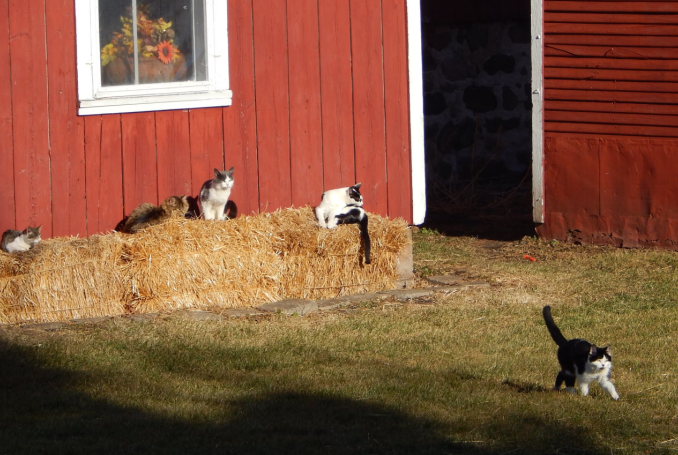
Let’s begin with the basics: What is a barn cat?
A barn cat is a domesticated cat which lives mainly outside and may spend its life in barns, sheds or stables. Barn cats are working animals, unlike normal pet cats. Their job? It’s simple: to hunt rodents, scare pests and keep grain stores or livestock areas clean.
Barn cats can either be feral cats, semi-feral or socialised cats, but are normally accustomed to outdoor life. Barn cats are independent and usually not very cuddly, although they can enjoy a pet or a scratch sometimes.
Barn cats should be independent, , and good hunters. Its self-sustaining capabilities must also be high to survive in other climatic conditions (especially during the rainy season), but some amount of human aid, such as food and shelter, keeps them nearby and in good condition.
Qualities to look for include:
● Strong prey drive
● Low dependency on human interaction
● Ability to tolerate other animals like horses, chickens, or dogs
● Good health and a strong immune system
Using an automatic feeder can make it easier for you to feed a barn cat. If you have to be away for sometime, an automatic feeder can schedule meals and ensure that your cat gets their food. A device such as the WOPet Barn Automatic Timed Feeder can ensure regular sustenance for the outdoor cats without them having to be completely dependent.
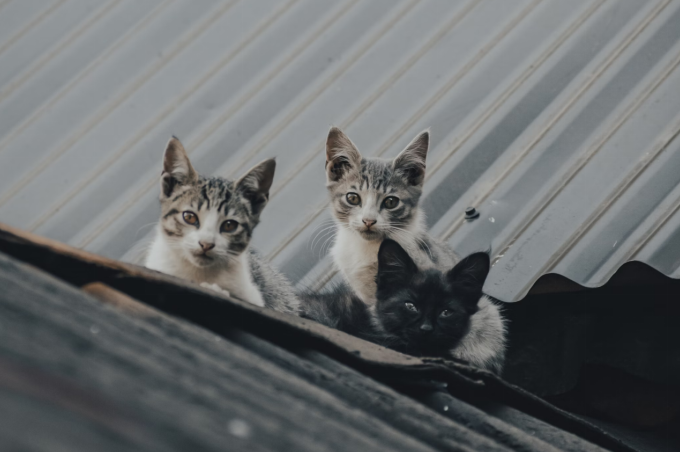
Some cat breeds are better suited to rural working life than others. Let’s explore the top barn cat breeds based on personality, durability, and hunting instincts.
The American Shorthairs are sturdy, muscular and famous for hunting mice. The cats are easy to maintain, do not have thick coats and therefore rarely need to be groomed. This also means they are able to adjust to different climates.
They are one of the most flexible working breeds of cats and are also very happy in barns, sheds, and outbuildings. They are socially tolerant, which means they accept the presence of humans, yet remain self-sufficient because they wander between places.
Maine Coons are also referred to as the gentle giant of the cat world and are very good farm cats as they are also good hunters. They have long hair, which suits their cold environment.
They are sociable and will live together with other animals. They can adjust to other pets in case you have them in your home.
The Manx cats are tailless (or with extremely short tails), very nimble and superb mouse-hunting felines. In fact, they have been in the culture of farms for generations, due to their loyalty and passion for hunting.
Most of the farmers say that they are the best barn cats since they end up connecting to where they are and protecting it at all costs.
Siberians are waterproof coated, being suited to hard outdoor surroundings. These cats have their origins in Russia, and they are suitable for the outdoors on farms.
They are fun-loving and their instincts are strong. For the colder regions, they are amongst the finest of barn cat breeds.
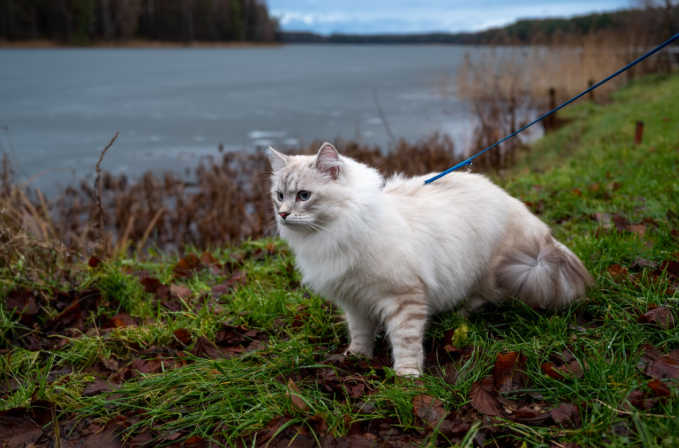
These are typical barn cats of mixed breed. They are also hardy and adaptable because they are of different backgrounds. Many rescues place feral or semi-feral Domestic Shorthairs as farm cats bred to give them a meaningful role.
They may not have pedigrees, but they’re often the best farm cats when it comes to affordability and availability.
While some cats transition between both roles, most good barn cats prefer the freedom and stimulation of outdoor life. However, it’s essential to provide basic support, like clean water and food, even to working cats.
An automatic feeder such as the WOPet Heritage Air Smart Feeder can serve two cats at once and is weather-resistant enough for covered barn areas.
Caring for barn cats requires a balance of independence and responsible pet ownership. Here’s how to keep them healthy and motivated:
Even the best hunters need reliable nutrition. Don’t assume your best farm cat will get all their nutrients from catching mice. Feed them daily to ensure they stick around.
Use a durable feeder, like the WOPet automatic dual-bowl feeder, to provide food on a schedule, even if you’re not around.
Cats in barns require a safe, dry shelter to sleep and hide from predators. A hay bale stack, a loft, or a heated cat house will keep them out of the cold during winter.
Neutering and spaying are necessary in order to avoid overpopulation. Even outdoor cats should get annual check-ups and vaccinations.
Cats are habitual animals. Keeping a regular schedule for feeding provides the feeling of security to them.
To get a feel for how planned feeding can be beneficial to behaviour and health, take a more detailed look into why a timed cat feeder is beneficial.
Yes, quite a number of the best farm cat types can also coexist with dogs, horses, chickens and even goats. One should introduce early and show exposure.
Some barn cats like to be left alone. Thus it is important to pick breeds or personalities that are a fitting match with regard to your current animals.
As an example, a cat who is particularly territorial might not survive in a herd of animals, whereas a relaxed breed such as the Maine Coon probably will.
Although barn cats tend to be independent, fundamental training will help them adjust well to the routine on your farm. It is possible to condition them by feeding them on a schedule and treats.
This comes in particularly handy when you use a device such as the WOPet Barn Automatic Timed Feeder that will make use of feeds available and reliable in timing. It helps condition your pets with the help of its automatic feeding schedule function.
Predator safety is a big concern. Raccoons, coyotes, hawks, and even stray dogs can pose a threat to good barn cats. To reduce the risk:
● Keep all cats in at night if you can
● Construct high-rise shelters or enclosures
● Feed during the daytime to not bring wild animals near you
● Put in motion-activated lights around the barn
When your cats are vaccinated, well-fed, and familiar with its territory, they have a better chance of being safe and in mode.
Not every property is suited for working cat breeds. Before bringing one home, ask yourself:
● Will I be able to feed and hydrate every day?
● Do I have plans to spay, neuter and vaccinate?
● Do I enjoy hands-off relationships?
In case you are not certain whether you want to commit to getting a cat through adoption, you can think about fostering a cat through a rescue group that will put them in a barn.
There are working cat programs in many organisations, and these programs pair semi-feral cats with farms.
The finest farm cat does not by any means need to be the most uncommon and most costly one. It is the one that grows in your area, guards your land and does not need much care to stay healthy.
Both hardy Domestic Shorthairs and fluffy Siberians are breeds that can be entirely self-sufficient on a farm with no need of humans whatsoever, but as much as any other breed, they rely on your assistance to ensure that they maintain a happy and healthy life.
If you want a barn cat in your estate, think about the demeanour, behaviour, and support requirements of the various barn cat breeds. With just minimal attention, you can easily keep these friends happy and loyal to you.
Label:
Popular Post

What to Feed a Sick Dog With No Appetite? [2025 Guide]
May 16, 2023
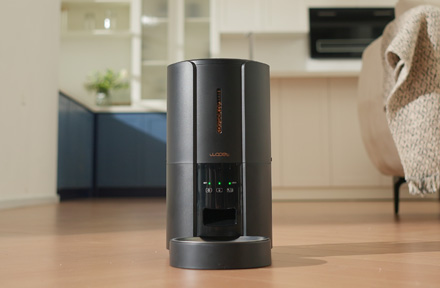
Troubleshooting Common Issues with Automatic Pet Feeders: Tips & Tricks for Pet Owners
Oct 26, 2023
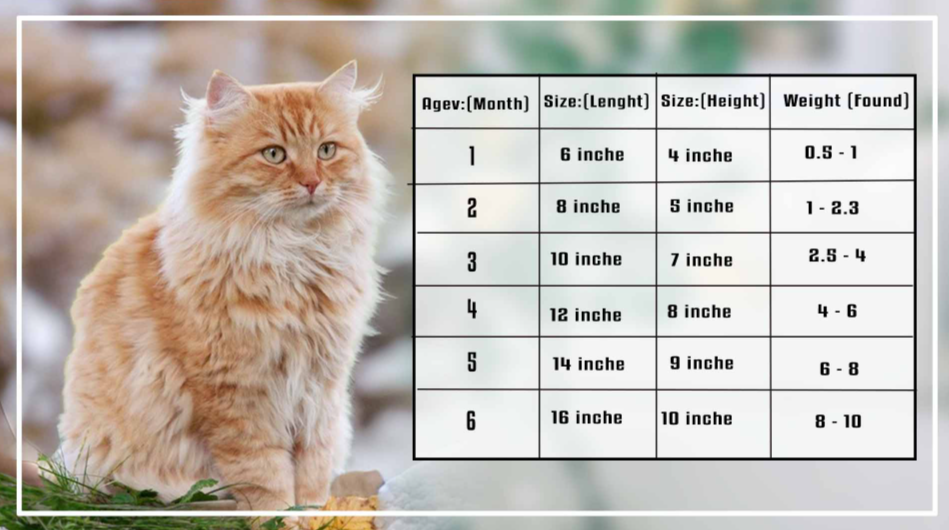
What is a standard Cat Weight chart by age Kg?
Mar 19, 2025

Why Does My Cat Cough After Drinking Water? 8 Potential Reasons
Mar 13, 2023
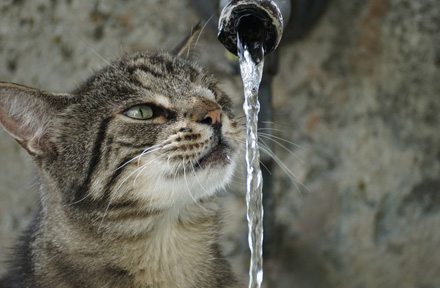
Why is My Cat Throwing up Water? Top 5 Causes Here
Feb 08, 2023
$109.99
$129.99
Copyright © 2025 WOPET. All Rights Reserved.